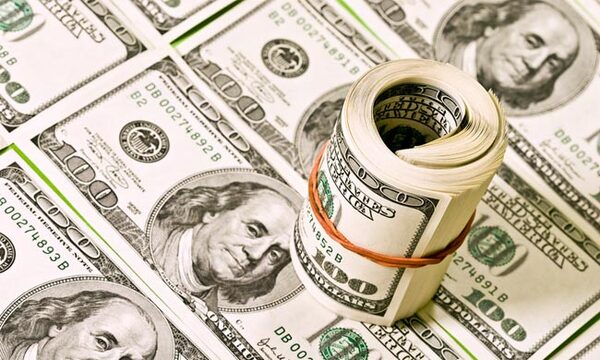John Rockefeller, the first billionaire in history
John Davison Rockefeller is an American entrepreneur, philanthropist, and the first dollar billionaire in human history. In 1870 he founded the Standard Oil Company and ran it until his official retirement in 1897. As the demand for kerosene and gasoline soared, the Rockefellers’ wealth also increased, and he became the richest man in the world in his day, with a net worth of $1.4 billion (1937 nominal) or 1.54% of US GDP at the time of his death. Adjusted for inflation, The New York Times estimates his wealth at around $192 billion in 2006 equivalent. Rockefeller was one of the US philanthropists, the founder of the Rockefeller Foundation, who donated large sums to medical research, education, in particular, to fight yellow fever. He also founded Chicago and Rockefeller University. Rockefeller was a believing Baptist and donated part of his income to support church institutions throughout his life. He always preached a healthy lifestyle and a complete rejection of alcohol and smoking. He had four daughters and one son, who inherited the management of the Rockefeller Foundation. Biography Rockefeller was the second of six children in a Protestant family. His father was first a lumberjack, and then an itinerant merchant who called himself a «botanical doctor» and sold various elixirs and was rarely at home. According to the recollections of the neighbors, John’s father was considered a strange man, trying to evade hard physical labor, although he had a good sense of humor. By nature, William was a risk-taker, which helped him build up the small amount of capital that allowed him to buy land for $3,100.

However, the propensity for risk was side by side with foresight, so part of the capital was invested in various enterprises. John Rockefeller recalled that from an early age his father told him about the enterprises in which he participated, explained the principles of doing business, he wrote about his father: “He often bargained with me and bought various services from me. He taught me how to buy and sell. My father just “trained” me to get rich!” When John was seven years old, he began to raise turkeys for sale, worked part-time digging potatoes for neighbors.
He recorded all the results of commercial activities in his little book. He invested all the money he earned in a porcelain piggy bank, and already at the age of 13 he lent $ 50 to a farmer friend at the rate of 7.5% per annum. His father’s upbringing was continued by his mother, from whom he learned hard work and discipline. Since the family was large, and the enterprises of William Rockefeller did not always end well, she often had to save money. At 13, John went to school in Richford. In his autobiography, he wrote that it was difficult for him to study and he had to study hard to complete the lessons.
Rockefeller successfully graduated from high school and entered Cleveland College, where they taught accounting and the basics of commerce, but soon came to the conclusion that a three-month accounting course and a thirst for activity would bring much more than college years, so he left him. In 1853, the Rockefeller family moved to Cleveland. Since John Rockefeller was one of the eldest children in the family, at the age of 16 he went to look for work. After six weeks of searching, he was hired as an assistant accountant for a small real estate and shipping company, Hewitt & Tuttle, and soon rose to the position of accountant. He was quickly able to establish himself as a competent professional, and as soon as the manager of Hewitt & Tuttle left his post, Rockefeller was immediately appointed in his place. At the same time, the salary was set at $ 600 dollars, while his predecessor received $ 2,000, because of this, Rockefeller left the company, and this was his only job in his biography for hire. Just at this time, the English entrepreneur John Morris Clark was looking for a partner with a capital of $ 2,000 to create a joint business. At that time, Rockefeller had accumulated $ 800, he borrowed the missing amount from his father at 10% per annum, and on April 27, 1857, he became a junior partner of the Clark and Rochester company, the company traded in hay, grain, meat and other goods.
During these years, the southern states announced their withdrawal from the Union and a civil war broke out, the federal authorities needed to supply a large army, and to fulfill large-scale orders for food supplies, the starting capital of $ 4,000 was not enough, the company needed a loan. Despite the fact that the company was young, Rockefeller managed to make a positive impression on the director of the bank with his sincerity, and he agreed to provide the company with a loan. In 1864, Rockefeller married teacher Laura Celestine Spelman, whom he met while still a student. Being pious, she also possessed a practical mindset. Rockefeller noted: «Without her advice, I would have remained a poor man.» In the late 1850s and early 1860s, kerosene lamps became widespread. py and increased demand for raw materials for kerosene — oil. At this time, Rockefeller met the chemist Samuel Andrews, who was involved in oil refining and was convinced of the promise of kerosene as a means of lighting. Rockefeller, on the other hand, was interested in a message about an oil field discovered by Edwin Drake in 1859.
Common interests rallied Andrews and Rockefeller and they, on an equal footing with Clark’s company, founded a new oil processing company, Andrews and Clark. The partners founded the Flats refinery in Cleveland. Transported oil and finished products by rail. The Standard Oil Company was founded in 1870. Rockefeller started looking for oil. At the beginning of his career, the future billionaire noticed that the entire oil business was some kind of chaotic machine. He understood that only by putting things in order in his work, it would be possible to think about some kind of commercial success. This is what he did with his partner. To begin with, a company charter was created. In order to motivate employees, Rockefeller at first decided to forego wages, rewarding them with shares. He believed that thanks to this they would work more actively, because they would consider themselves part of the company. And their final income will depend on the success of the business.
The business began to generate income, and Rockefeller began to gradually buy up other oil firms one at a time, small enterprises that were not very expensive. This strategy did not sit well with many Americans. Rockefeller negotiated with railroad companies to regulate transport prices, so Standard Oil received lower prices than its competitors: it paid 10 cents for transporting a barrel of oil, while competitors paid 35 cents, and from a difference of 25 cents from each barrel, the Rockefeller company also received income. Competitors could not resist him, Rockefeller put them before a choice: to unite with him, or ruin. Most of them chose to become part of Standard Oil in exchange for a share of the shares. Already by 1880, thanks to numerous small and medium-sized mergers, 95% of America’s oil production was in the hands of Rockefeller. After becoming a monopoly, Standard Oil raised prices and became the largest company in the world at that time. Ten years later, the Sherman Anti-Monopoly Act required Standard Oil to be split up. After that, Rockefeller split the business into 34 small companies and in all of them he retained a controlling stake and at the same time increased capital. Almost all major American oil companies originated from Standard Oil, including ExxonMobil, Chevron.
Standard Oil brought Rockefeller $ 3 million annually, he owned sixteen railroad and six steel companies, nine real estate firms, six shipping companies, nine banks and three orange groves. Rockefeller’s name has become a symbol of wealth. Rockefeller lived in great comfort, but did not flaunt his wealth like other millionaires from New York’s 5th Avenue. In 1935, when Rockefeller was 96 years old, the insurance company sent him a check for $ 5 million, this was the first case in the history of the company — according to statistics, only one person out of a hundred thousand lives to this age.
Rockefeller wanted to live to be a hundred years old, but he did not live three years — on May 23, 1937, he died of a heart attack at the age of 97. John Rockefeller Business Rules Work less for someone. The more you work not for yourself, the worse you live. Work — from the word «slave»! Save money. Look for where you can buy goods cheaper and in bulk. Plan your shopping list ahead of time and only buy what’s on the list. If you have little money, you need to do business. If there is no money at all, you need to do business urgently! Right now! The path to great wealth lies only through passive income! Income that comes to you regardless of your efforts. Create a source of passive income and live to your heart’s content! Think about how to earn at least $50,000 per month. Can be more. Less is impossible! This figure was recommended by Rockefeller for a reason: the fact is that the richest people in our world spend no more than $50,000 a month. Money comes to you through other people. Chat! Unsociable people rarely become rich. A poor environment almost always pulls you into poverty. Even very rich people will always have relatives, friends and other petitioners who, if they are not professionally fought off, will quickly deprive you of money, goals and your dreams. If you are still a poor person, then most likely in your environment they simply do not like, do not respect, and some even hate the rich. You should always communicate with Optimists and Winners. That’s right, with a capital letter — Optimists and Winners! Poverty arises when one shirks responsibility.
Do not invent excuses for yourself — why right now you cannot start moving towards your goal. Learn the biographies and thoughts of the richest people in the world. Dreams are the most important thing in your life! Dreams professionally turn into a business programs and implement them to the fullest! Each professionally developed program must contain the entire calculation to the most complete desired result. This is how dreams come true! Help people disinterestedly, from the bottom of your heart! But only to those whom you yourself want to help. Give 10% of profits to charity. Create business systems and enjoy your earned money.



